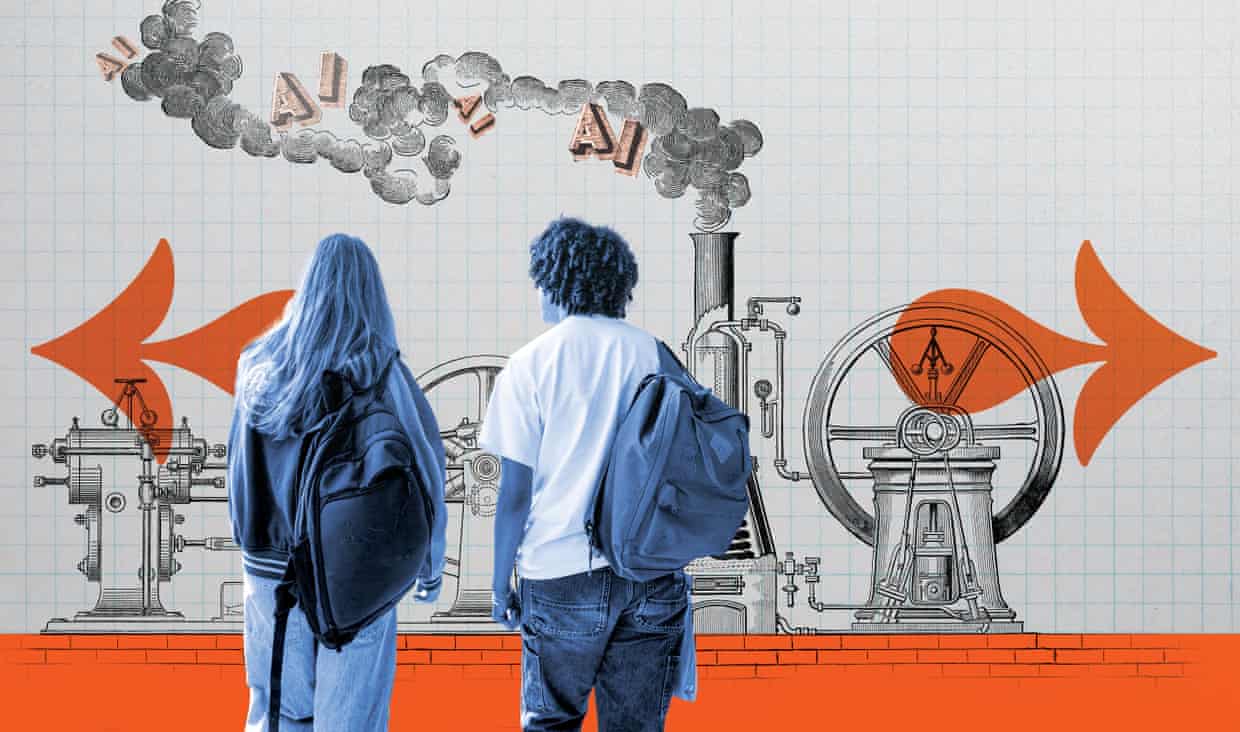Technology
Educators Embrace AI’s Role in Shaping University Futures

The advent of artificial intelligence (AI) is reshaping university education, prompting educators to rethink curricula and career readiness for students. Sam Altman, CEO of OpenAI, recently expressed optimism about this transformation, stating that graduating in today’s AI-driven landscape is a unique opportunity. During an interview on a US podcast, Altman remarked, “I would feel like the luckiest kid in all of history,” highlighting the potential benefits and challenges posed by AI, including job displacement and the emergence of new roles.
In light of these changes, experts are advising students and their families to consider how to best navigate the university landscape. Dr. Andrew Rogoyski from the Institute for People-Centred AI at the University of Surrey underscores the importance of adapting to this evolving environment. He notes, “The pace of change and adoption vastly outstrips the pace of academic institutions to respond.” This rapid shift has led to a recognition among educators that AI skills are essential and must be integrated into all courses.
Rogoyski encourages prospective students to be proactive. “Be demanding. Ask the questions,” he advises, emphasizing the need for students to verify how universities are adapting to AI’s influence on their programs. Those unfamiliar with AI should take the initiative to learn its fundamentals, as proficiency in these tools has become as crucial as literacy itself. “It’s important to be resourceful, adaptable, and to understand what AI is capable of and what it can and can’t do,” he adds.
For students contemplating their future studies, Rogoyski suggests evaluating the AI readiness of their prospective universities. He recommends visiting campuses and engaging with faculty to understand their strategies and attitudes toward AI integration. “Is my course, and is the university as a whole, on the front foot with regards to the use of AI?” he questions.
Dan Hawes, co-founder of the Graduate Recruitment Bureau, presents a positive outlook for UK graduates. He attributes the current slowdown in the job market to broader economic conditions rather than to AI. “It’s still very hard to predict what jobs there will be in three to four years, but we think it’s going to put a premium on graduates,” he explains. Hawes points out that today’s students have grown up with AI, making them particularly valuable to employers seeking fresh talent.
The demand for specific skills remains significant, particularly in fields such as mathematics. Hawes notes that a degree in mathematics continues to be highly sought after, asserting, “AI is not going to devalue the skills and knowledge you get from doing a maths degree.” He acknowledges concerns surrounding AI but believes it will ultimately enrich job roles and foster the creation of new positions.
Elena Simperl, a professor of computer science at King’s College London, advises students to explore AI applications across all disciplines. “It is changing how we do things,” she states, pointing out that AI’s impact extends beyond technical fields. Simperl highlights initiatives like DeepMind’s proposal for AI co-scientists, which could revolutionize research methodologies. “A university should train their students so that they can make the most out of these technologies,” she insists.
While speculation about job displacement exists, Simperl believes it is more productive to consider how AI can enhance various tasks. “We need to stop thinking about what jobs will be killed by AI and think about what tasks AI can help with,” she explains. The ability to utilize AI effectively will be an advantage in the job market.
Regarding traditional degrees, Rogoyski reassures students that disciplines such as English literature and history remain valuable, provided they are taught effectively. “The appreciation of literature, learning how to write well, learning how to think and how to communicate are enduring skills,” he emphasizes. As the job landscape evolves, these foundational skills will continue to hold significance.
In conclusion, as AI continues to transform university education and the job market, students are encouraged to embrace this change. By actively engaging with their education and understanding the implications of AI, they can position themselves for a successful future, equipped with the skills necessary to thrive in an increasingly automated world.
-

 Science3 months ago
Science3 months agoToyoake City Proposes Daily Two-Hour Smartphone Use Limit
-

 Health3 months ago
Health3 months agoB.C. Review Reveals Urgent Need for Rare-Disease Drug Reforms
-

 Top Stories3 months ago
Top Stories3 months agoPedestrian Fatally Injured in Esquimalt Collision on August 14
-

 Technology3 months ago
Technology3 months agoDark Adventure Game “Bye Sweet Carole” Set for October Release
-

 World3 months ago
World3 months agoJimmy Lai’s Defense Challenges Charges Under National Security Law
-

 Lifestyle3 months ago
Lifestyle3 months agoVictoria’s Pop-Up Shop Shines Light on B.C.’s Wolf Cull
-

 Technology3 months ago
Technology3 months agoKonami Revives Iconic Metal Gear Solid Delta Ahead of Release
-

 Technology3 months ago
Technology3 months agoApple Expands Self-Service Repair Program to Canada
-

 Technology3 months ago
Technology3 months agoSnapmaker U1 Color 3D Printer Redefines Speed and Sustainability
-

 Technology3 months ago
Technology3 months agoAION Folding Knife: Redefining EDC Design with Premium Materials
-

 Technology3 months ago
Technology3 months agoSolve Today’s Wordle Challenge: Hints and Answer for August 19
-

 Business3 months ago
Business3 months agoGordon Murray Automotive Unveils S1 LM and Le Mans GTR at Monterey









